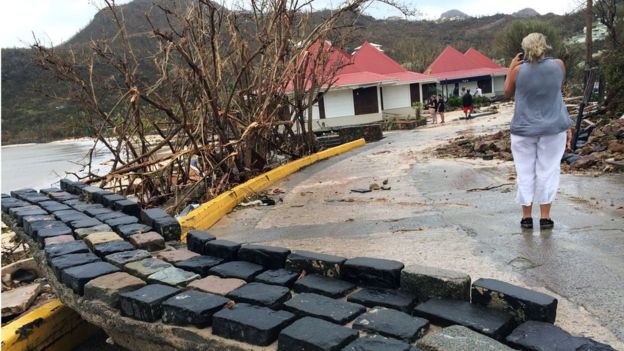The WMO says it will likely be the hottest year in the absence of the El Niño phenomenon.
The scientists argue that the long-term trend of warming driven by human activities continues unabated.
They say many of the "extraordinary" weather events seen this year bear the hallmarks of climate change.
On the opening day of this year's key UN climate talks, researchers from the WMO have presented their annual State of the Global Climate report.
It follows hot on the heels of their greenhouse gases study from last week which found that concentrations of CO2 in the atmosphere were the highest on record.
While the new study only covers January to September, the WMO says the average global temperature was 1.1C above the pre-industrial figure.
This is getting dangerously close to the 1.5 degrees threshold that many island states feel temperatures must be kept under to ensure their survival.
The analysis suggests that 2017 is likely to come in 0.47C warmer than the 1981-2010 average.
This is slightly down on 2016 when the El Niño weather phenomenon saw temperatures that were 0.56C above the average.
According to the WMO, this year vies with 2015 to be the second or third warmest mark yet recorded.

The Caribbean island of Saint-Barthelemy after it was hit by Hurricane Irma
"The past three years have all been in the top three years in terms of temperature records. This is part of a long-term warming trend," said WMO Secretary-General Petteri Taalas.
"We have witnessed extraordinary weather, including temperatures topping 50C in Asia, record-breaking hurricanes in rapid succession in the Caribbean and Atlantic, (and) reaching as far as Ireland, devastating monsoon flooding affecting many millions of people and a relentless drought in East Africa.
"Many of these events - and detailed scientific studies will determine exactly how many - bear the tell-tale sign of climate change caused by increased greenhouse gas concentrations from human activities," he said.
(Source : BBC)


No comments:
Post a Comment